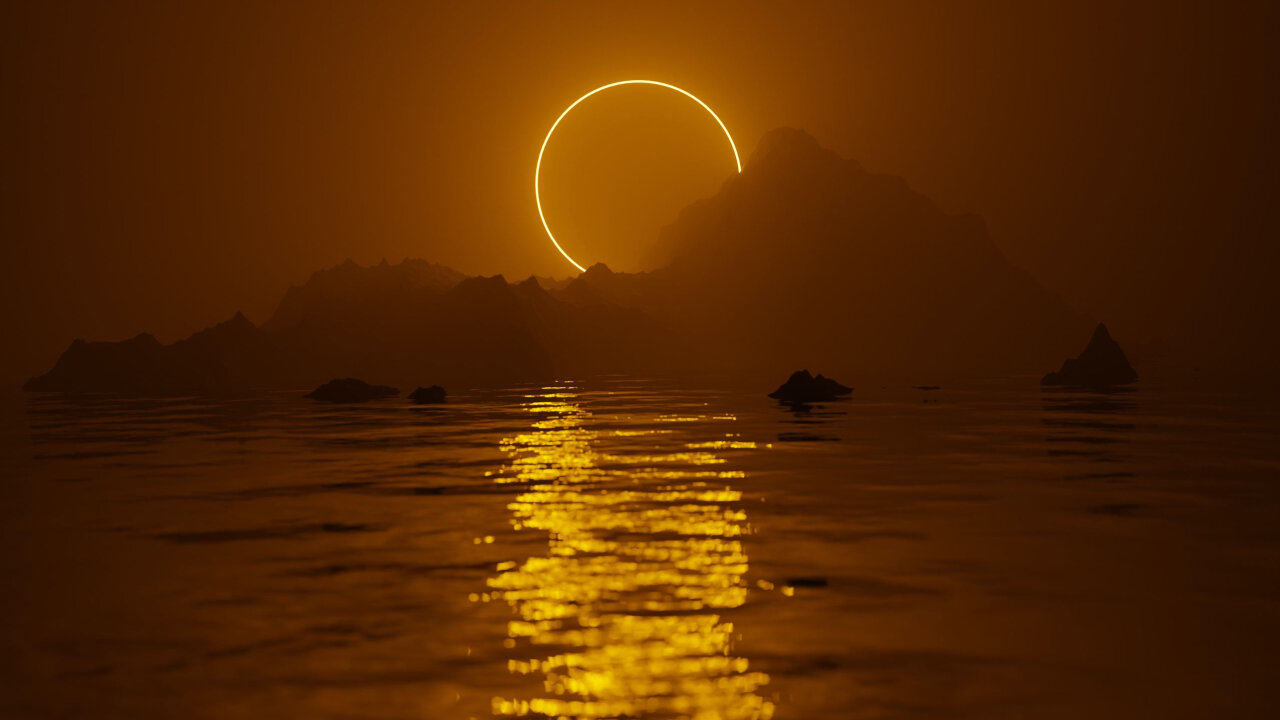Premium Only Content

Eclipse News: Why NASA says the 2024 Solar Eclipse will be "way cooler" than the 2017 Total Eclipse
ECLIPSE MERCH AVAILABLE: https://totaleclipse2024.curatedspot.com/products/bestsellingshirts
Millions of individuals will have the opportunity to wear protective eyewear and witness a remarkable total solar eclipse on April 8, 2024, commencing around 1 p.m. CT.
If this scenario sounds familiar, it's reminiscent of the 2017 total solar eclipse that spanned a 70-mile-wide band across the United States. During that event, enthusiasts from various regions experienced either a total or partial eclipse, prompting cross-state journeys and gatherings near planetariums to witness those brief moments when daylight turned into darkness.
However, the upcoming total eclipse in April is anticipated to be even more captivating, as enthusiastic NASA scientists shared with reporters during an American Geophysical Union meeting.
"Those of us who have witnessed eclipses understand the anticipation for the next one," remarked Kelly Korreck, NASA's program manager for the 2024 solar eclipse, during a roundtable discussion at the meeting.
Korreck noted that the recent memory of the 2017 eclipse likely has many people eagerly anticipating this year's celestial event.
Although total solar eclipses aren't exceptionally rare, several unique aspects surround the upcoming occurrence, including its trajectory across the US, heightened solar activity, and a multitude of scientific projects planned by NASA and other organizations for the brief period when the moon appears to cover the sun.
In 2017, the continental US experienced its first coast-to-coast total eclipse since 1918, with portions of 14 states in its path. However, densely populated cities like Atlanta and Charlotte, North Carolina, were not included.
This year, a larger audience will have the opportunity to witness the eclipse without the need for extensive travel.
ECLIPSE MERCH AVAILABLE: https://totaleclipse2024.curatedspot.com/products/bestsellingshirts
-
 LIVE
LIVE
SpartakusLIVE
6 hours ago $13.53 earnedThe Duke rallies squad for LAUGHS into the night with a SMATTERING of TOXIC banter
2,136 watching -
 1:03:51
1:03:51
Flyover Conservatives
23 hours agoGeneration Z’s Revolution: 17 Year Old Author on the Return of Faith, Family, and the End of Feminism - Hannah Faulkner; Economic Update - Dr. Kirk Elliott | FOC Show
27.5K2 -
 1:12:43
1:12:43
Adam Does Movies
8 hours ago $6.48 earnedMoviegoers Are Singing Now! + Lilo & Stitch + Sonic 3 - LIVE!
55.8K5 -
 1:26:05
1:26:05
Donald Trump Jr.
11 hours agoRegime Media Imploding: What’s Next for MSNBC? Plus Michael Knowles & Alex Marlow | TRIGGERED Ep.194
209K199 -
 37:26
37:26
Glenn Greenwald
9 hours agoGlenn Takes Your Questions: On Trump's Cabinet, The G20 Summit, and More | SYSTEM UPDATE LOCALS SPECIAL
77.9K23 -
 2:10:20
2:10:20
We Like Shooting
15 hours ago $1.19 earnedWe Like Shooting 586 (Gun Podcast)
16K -
 52:14
52:14
Uncommon Sense In Current Times
10 hours ago $0.33 earned“Pumpkin Pie Politics: Bridging the Thanksgiving Divide to Protect The Family"
12K -
 1:01:28
1:01:28
The StoneZONE with Roger Stone
5 hours agoWhy Jack Smith Owes Americans Millions of Dollars for Fake Investigations | The StoneZONE
33.3K4 -
 3:50:40
3:50:40
Tundra Gaming Live
9 hours ago $2.27 earnedThe Worlds Okayest War Thunder Stream
33K -
 2:22:30
2:22:30
WeAreChange
7 hours agoBREAKING: Biden Admin Could SEND NUKES To Ukraine?! UK & France To Send Troops? w/ Roger Stone
49.6K16